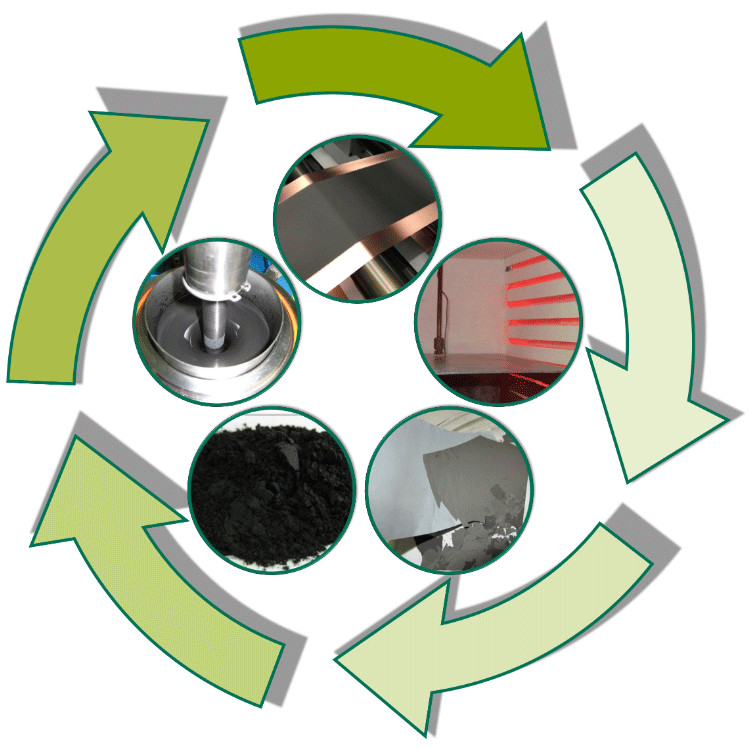Action – Recycling of electrode production rejects
In order to completely close the material and substance cycles in battery cell production and to reduce costs and environmental impacts along the production chain of lithium-ion batteries, production rejects should be directly recycled. The focus of Action is on establishing the resource-efficient recycling of electrode rejects from battery cell production, since no industrial implementation of reject recycling at electrode level is known to date. Compared to the recycling of old cells, an advantage up to cell assembly lies in the existing varietal purity of the semi-finished product, which means that a recycling process can be designed much more efficiently and in a more targeted manner. In addition to the improvement of existing mechanical processes with regard to the processing of electrodes while minimizing the contamination of the recovered material, the development of novel, situation-adapted recycling processes will also be pushed forward. The focus is on the development of a wet-chemical and a thermal process route, as well as the adaptation and further development of mechanical routes. The thermal and wet-chemical process routes will initially be evaluated on a laboratory scale in order to subsequently map the scalability of the processes. The technological process evaluation will be supported by the ecological and economic evaluation.
Project goals are, among others, to identify electrode layer detachment mechanisms/processes that can ideally be integrated into the industrial production process of lithium-ion battery electrodes. In addition, it will be examined how the recovered electrode-specific black mass can be recycled into the production process as well as possible and to what extent a restriction of the cell performance can be ruled out.
Contact
Technische Universität Braunschweig (TUBS) Institute for Particle Technology (IPAT)
Prof. Dr.-Ing. Arno Kwade
Volkmaroder Str. 5
D-38104 Braunschweig
Duration of project
01.03.2021 – 29.02.2024
Involved partners
